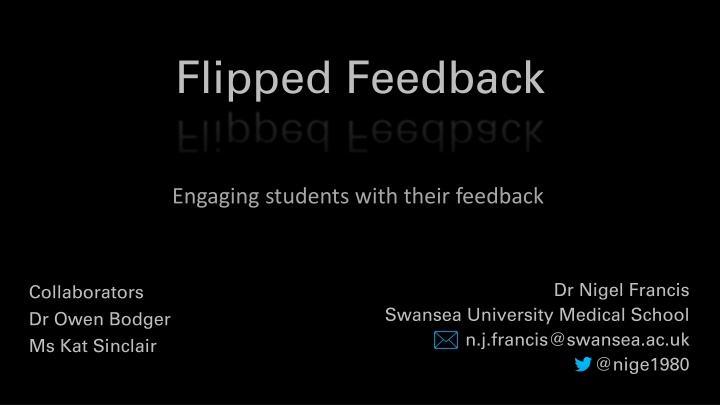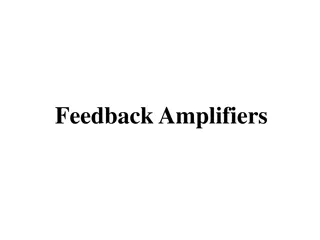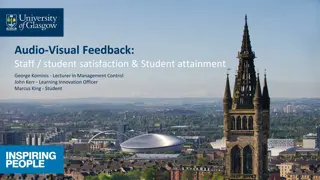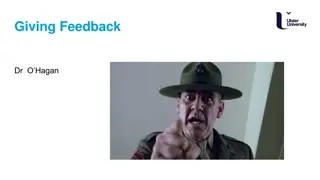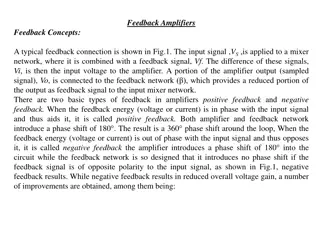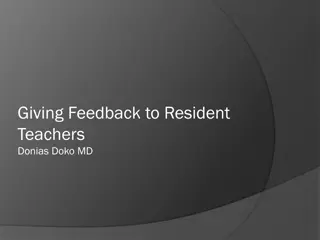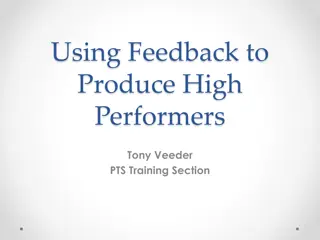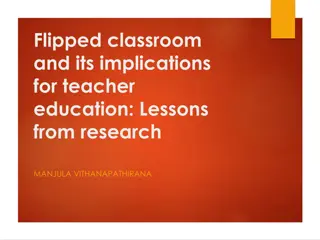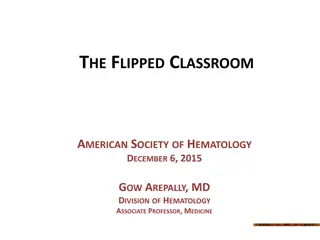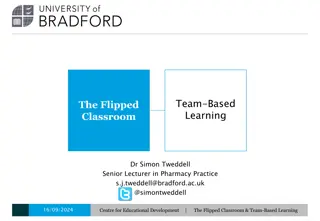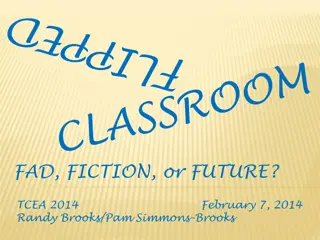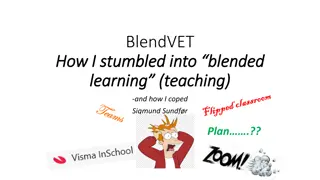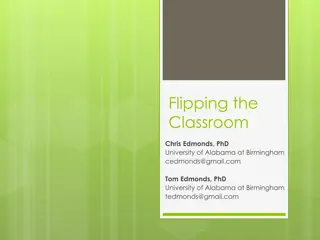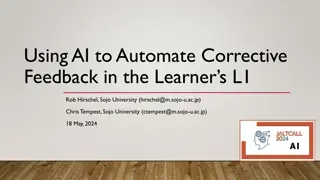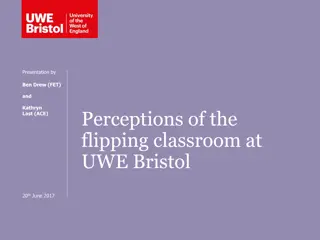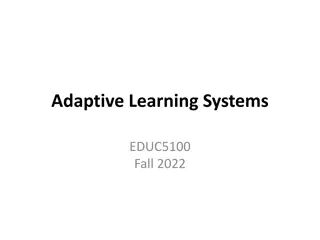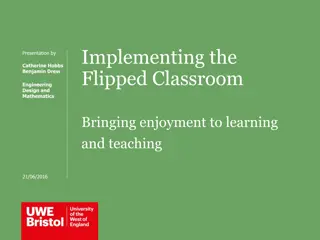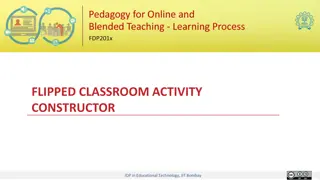Flipped Feedback
In this collaborative project led by Dr. Nigel Francis at Swansea University Medical School, the team explores innovative methods to involve students in the feedback process. Through a flipped approach, which prioritizes student engagement, the project aims to enhance feedback utilization and promote active learning among students. With contributions from Dr. Owen Bodger and Ms. Kat Sinclair, this initiative seeks to revolutionize feedback practices in educational settings, fostering a dynamic feedback culture that empowers students in their learning journey.
Download Presentation

Please find below an Image/Link to download the presentation.
The content on the website is provided AS IS for your information and personal use only. It may not be sold, licensed, or shared on other websites without obtaining consent from the author.If you encounter any issues during the download, it is possible that the publisher has removed the file from their server.
You are allowed to download the files provided on this website for personal or commercial use, subject to the condition that they are used lawfully. All files are the property of their respective owners.
The content on the website is provided AS IS for your information and personal use only. It may not be sold, licensed, or shared on other websites without obtaining consent from the author.
E N D
Presentation Transcript
Flipped Feedback Engaging students with their feedback Dr Nigel Francis Collaborators Dr Owen Bodger Ms Kat Sinclair Swansea University Medical School n.j.francis@swansea.ac.uk @nige1980
Background 2ndYear module
Background 75% exam, 25% coursework 2ndYear module
Background 75% exam, 25% coursework 2ndYear module Coursework 2 lab reports
Why this intervention? 75% exam, 25% coursework 2ndYear module Coursework 2 lab reports 5-year average 52.4%
Students like the practicals The practical report allowed for the clinical to pathway link to be evident and investigated. I feel like I learnt a lot from doing the report The actual labs were fun and stimulating The labs were effective The most effective aspect of the module was definitely the practical classes The lab report subjects were good, the questions helped deepen our understanding of these topics
but lots of confusion I feel that the practical was more difficult for those of us who are primarily on a genetics course The expectations for the report were also unclear The coursework was confusing, I could not work out what was being asked We have yet to receive our marks and feedback for our lab reports for this module (4 weeks after the hand in)
Providing generic feedback on a draft submission My solution Students improve draft and resubmit Winstone & Carless, 2019., Nicol, 2020
What is flipped feedback?
Generic feedback only on draft Self assessment by students What is flipped feedback? Predict their mark based on above Reflective evaluation of performance Request for specific feedback Carless & Boud, 2018., Carless, 2019
The incentive Draft worth 64%, final report worth 36% If predicted mark within 5%, higher mark wins
Did it work? * **** **** 90 80 70 Average Mark (%) 60 50 40 30 20 10 0 Haemoglobin Glucose Haemoglobin Glucose Haemoglobin Glucose 2017/18 2018/19 2019/20
Draft vs Final 100 **** **** 90 80 Average Mark (%) 70 60 50 40 30 20 10 0 Haemoglobin Draft Final Glucose Draft Final
82% of students improved haemoglobin mark 81% of students improved glucose mark Average improvement haemoglobin 9% (0 - 31% range) Key findings Average improvement glucose 6% (0 40% range) Highly significant (paired samples, 2-tailed p<0.0001) Weak correlation (Spearman s, rs = 0.289, p= 0.04) haemoglobin vs glucose final
Student opinion Overall I found the flipped feedback approach useful The general feedback comments allowed me to understand where I had gained/lost marks Predicting my mark based on the self-analysis was useful I would prefer to just receive individual feedback on the final report Overall I did not find this approach to feedback helped me improve my understanding of the topic This approach has allowed me to apply the feedback received to other tasks 100% 0% 100% Strongly disagree Disagree Neutral Agree Strongly agree
What the students liked free text It clearly stated on the self assessment how we could improve our work and how to achieve the best possible grade That I was able to improve on my draft to improve my mark and hand in a final copy to show what I had learnt and how I applied that I feel that I learnt more from the approach because I had the chance to go back through my report and correct things I would never have otherwise known I did wrong. It allowed me to learn what I was doing wrong in the assessment I was handing in. I liked that i could improve on my work and felt that I learned more by going back and improving I liked the fact that I was able to use the self-analysis to gain a better understanding of the requirements of the task and how I could improve my work. I appreciated the chance to then directly incorporate this feedback into a final draft which would contribute to my mark the task further
Ways to improve Longer for draft, shorter time for final version Students did not like predicting their own marks More detail in the generic feedback AND in initial proforma Tracked changes in the final submission
How would I sum it up A work in progress! n.j.francis@swansea.ac.uk
